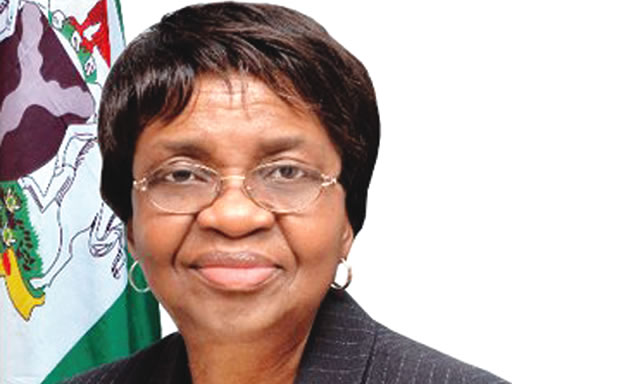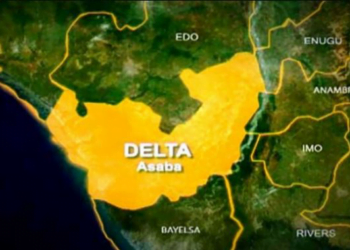By Nnaji Jekwu Onovo
Across the world, countries with diverse populations establish peculiar policies to increase opportunities and ensure equal representation of the various groups. These policies are crafted and implemented to provide a level playing field and curb discrimination and underrepresentation, systemic or otherwise. And they take different names, such as affirmative action, reservation quota and positive discrimination. Nigeria’s version of this is called the Federal Character Principle (FCP).
Section 14(3) of the 1999 constitution as amended, captures the federal character principle. The Federal character principle was borne out of the need to ensure evenness in spreading government appointments to promote inclusion, representation, a sense of belonging and balance in the polity. The underlying philosophy of the federal character principle is providing equality of access in public service representation to curb dominance by one or a few sections.
Beyond the need to achieve political stability, the implementation of the federal character principle in the educational sector was officially predicated on considerations of justice and equity which, the government reasoned, demanded equalization of opportunities for Nigerians. This was codified into a recruitment principle for Nigerian universities as captured by the phrase ‘catchment areas.’ As a recruitment ideology, the invocation of ‘catchment areas’ (CA) seeks the reservation of certain rights and privileges for the benefit of individuals and groups within the locale of a federal or national institution or agency.
In the universities, it is most readily associated with the preferential allocation of admission quota to ‘indigenes’ of the university location and its contiguous neighbourhood. However, as a factor in university governance, CA is also expressed in employment of staff, and key political and administrative appointments including the vice-chancellorship.
The catchment area for University of Nigeria Nsukka (UNN) are the core Igbo states of the South East geo-political zone including Abia, Anambra, Ebonyi, Enugu, and Imo.
Almost every university in the country is enmeshed in the domestication of appointments of principal officers of the institution like the vice-chancellor, bursar, registrar, deans, HoDs and others. Most host communities see universities in their domains as theirs and so, are in the forefront of clamouring for ‘a son of the soil’ to be head of such institutions. In this vein, a social cultural organization in Enugu North Senatorial zone known as “Kpokotenu Nsukka,” has appealed to President Bola Tinubu-led federal government to consider the zone when appointing the next Vice-Chancellor of UNN. The group also called on Governor Peter Mbah of Enugu State to support their agitation for the emergence of an Nsukka man as Vice-Chancellor of UNN. They noted that no native of the host community has occupied the VC position since the establishment of the premier university in 1960.
The laws that establish the various universities specify the principal officers who are required to direct the affairs of the universities. These include the chancellor, the pro-chancellor and chairman of the council, the vice-chancellor, the deputy vice-chancellor, the registrar and secretary to the council, the university librarian, and the bursar.
The chancellor of a federal university in Nigeria is appointed by and holds office at the pleasure of the Nigerian president who is the Visitor to the university. The pro-chancellor/chairman of the council is also appointed by the President of Nigeria. While the chancellor and pro-chancellor, as political appointees of the Visitor / Federal Government, are supposedly representing the interest of the government and the Nigerian president as the principal stakeholder, the vice-chancellor and the other principal officers are career academics and or professionals, respectively as the case may be, and they are leaders of university bureaucracy, deemed apolitical in their respective arms of that public institution.
The vice-chancellor is considered the principal academic and executive officer of the university. Finding the right person to fit into the position becomes important, not only in the interest of the university but also in the interest of nation-building.
In time past up till the 1980s, many of the federal universities have had non-indigenes of their regions of location as vice-chancellors. For example, Oladipo Akinkugbe (indigene of Western Region, now South-West geopolitical zone) was vice-chancellor of Ahmadu Bello University, Zaria (North-west geopolitical zone) between 1978 and 1979. Kenneth Dike (indigene of Eastern Region, now South-East geopolitical zone) was vice-chancellor of University of Ibadan (South-west geopolitical zone) between 1960 and 1967.
That trend is noted to have gradually receded in the federal universities starting from the 1980s, with the universities now lining-up ethno-regional indigene vice-chancellors and other principal officers. I plead with the good people of Enugu North Senatorial Zone, not to narrow the appointment of the principal officers of UNN to senatorial level.
Enugu North Senatorial District is a subset of Enugu State, and Enugu State has enjoyed fair share in producing Vice Chancellors of the premier university, UNN.
In fact, of the five states that make up the catchment areas for UNN, only three have enjoyed the privilege of producing the Vice Chancellors of the university. The states are Abia, Anambra and Enugu. The remaining states of Ebonyi and Imo have never occupied the VC position in the premier university. I believe these two states are not short of eminently qualified professors to occupy this position; therefore request we reserve the right of first refusal to the two states of Ebonyi and Imo. This is necessary to reflect equity and justice.
For purposes of clarity, the following are the Igbo professors from the South East who occupied/occupy the VC position in UNN: Prof. Eni Njoku, 3rd VC from 1966 to 1970 (Abia State), Prof. Chimere Eyo-Ita Ikoku, 8th VC from 1985 to 1992 (Abia State), Prof. Oleka Kelechi Udeala, 9th VC from 1992 to 1995 (Abia State); Prof. James Okoye Chukwuka Ezeilo, 5th VC from 1975 to 1978 (Anambra State), Prof. Ginigeme Francis Mbanefoh, 11th VC from 1998 to 2004 (Anambra State), Prof. Benjamin Chukwuma Ozumba, 14th VC from 2014 to 2019 (Anambra State), Prof. Charles Arinzechukwu Igwe, 15th VC from 2019 till date (Anambra State); Prof. Chinedu Ositadinma Nebo, 12th VC from 2004 to 2009 (Enugu State), Prof. Bartho Ndubuisi Okolo, 13th VC from 2009 to 2014 (Enugu State).
I believe that irrespective of states of origin, whenever it comes to the issue of senior/academic staff recruitment and principal officers’ appointment, key actors in the university should always place a higher premium on academic/professional excellence, managerial acumen, and demonstrated integrity of the respective candidates in open competition.
•Onovo writes from Lagos




 1 day ago
29
1 day ago
29








 English (US) ·
English (US) ·